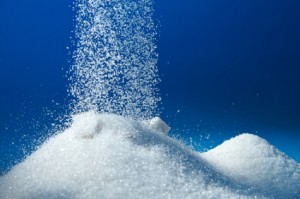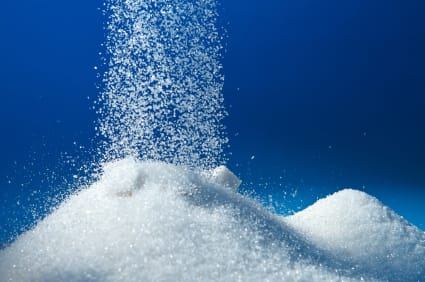 Research behind artificial sweeteners now suggests that using these flavor supplements can be harmful to your body. The obvious question behind this is how can it be that something that has zero calories, or at least a lot less calories than the non “diet” version of any particular food not be beneficial for weight loss, which in turn should be good for your health? In order to answer this we must first look at the sweeteners themselves.
Research behind artificial sweeteners now suggests that using these flavor supplements can be harmful to your body. The obvious question behind this is how can it be that something that has zero calories, or at least a lot less calories than the non “diet” version of any particular food not be beneficial for weight loss, which in turn should be good for your health? In order to answer this we must first look at the sweeteners themselves.
What are these sweeteners and just how sweet are they? Aspartame, commonly known as NutraSweet, is 200 times sweeter than sugar. Saccharin, which is marketed as Sweet ‘n Low (among others brands) is also 200 times sweeter than sugar. One of the more popular sweeteners today is Sucralose, which we see on the shelves as Splenda. It is 600 times sweeter than sugar. Although all of these sweeteners have been approved for use and have been determined as safe by government authorities, their continued use has been shown to be problematic. It should be noted that the Center for Science in the Public Interest, citing a study done by the National Cancer Institute, still maintains that saccharin in heavy amounts causes cancer of the bladder. Some of these sweeteners are known to cause bloating and stomach discomfort as well as rashes/flushing, panic-like agitation, dizziness and numbness, diarrhea, swelling, muscle aches, headaches (migraines), intestinal cramping, bladder issues, and stomach pain. This is particularly true of people that have food sensitivities and allergies to begin with. In addition many people have chosen to use a more natural product as a sweetener. Stevia is a combination of about 240 species of herbs and shrubs in the sunflower family. As a sweetener and sugar substitute, stevia’s taste has a slower onset and longer duration than that of sugar, although some of its extracts may have a bitter or licorice-like aftertaste at high concentrations. With its steviol glycoside extracts having up to 300 times the sweetness of sugar, stevia has garnered attention with the rise in demand for low-carbohydrate, low-sugar food alternatives. Because stevia has a negligible effect on blood glucose, it is attractive as a natural sweetener to people on carbohydrate-controlled diets.
Artificial sweeteners not only aren’t helping people lose weight; a study conducted at Harvard Medical School using the Framingham Heart Study shows that consuming diet drinks may actually increase the risk of heart disease. Ravi Dhingra, M.D. and her colleagues looked at nearly 6,000 middle-aged men and women who had medical examinations every four years. Those who consumed more than one diet or regular soda per day experienced a 25% increased risk of impaired fasting glucose and high triglyceride levels. They had a 31% greater chance of becoming obese, a 32% higher chance of low HDL levels (good cholesterol), and a 44% increased risk of metabolic syndrome.
And a study presented this February of 2011 at the national stroke conference, suggests that today’s popular drinks may increase the risk for stroke, myocardial infarction (heart attack), and vascular death.”People who had diet soda every day experienced a 61% higher risk of vascular events than those who reported drinking no soda,” reported lead investigator Hannah Gardener, ScD, an epidemiologist from the University Of Miami Miller School Of Medicine in Florida. Previous studies have suggested a link between diet soda consumption and the risk for metabolic syndrome and diabetes. But this is the first time diet drinks have been associated with vascular events. And now a blockbuster study has shown that accumulating evidence suggests that frequent consumers of these sugar substitutes may also be at increased risk of excessive weight gain, metabolic syndrome, type 2 diabetes, and cardiovascular disease.
Susan E. Swithers is a professor of Ingestive Behavior Research at Purdue University who has done the most recent research on artificial sweeteners. Her findings open up a whole different problem. She says that her research shows that there may actually be a metabolic change in our bodies when we ingest artificial sweeteners. She points out that consumption of sugar-sweetened beverages has been increasingly associated with negative health outcomes such as being overweight, obesity, type 2 diabetes, and metabolic syndrome, Based largely on these associations, many researchers and healthcare practitioners have proposed that non-caloric, high-intensity sweeteners provide a beneficial alternative in foods and beverages. There is no doubt that replacing caloric with non-caloric sweeteners reduces the energy density of foods and beverages. However, whether reducing energy density in this manner always translates into reduced energy intake, lower body weight, and improved metabolic health, is much less certain according to this study.
Dr. Swithers points out that weight gain appears common in those consuming these beverages. She cites the San Antonio Heart Study documented weight change in men and women over a 7–8-year period. As part of that study, Fowler et al. reported that, among participants who were normal weight or overweight at baseline, risk of weight gain and obesity were significantly greater in those consuming artificially sweetened beverages compared with those who did not consume them. Also people consuming these beverages seem to have a higher risk of metabolic syndrome, type 2 diabetes, high blood pressure and cardiovascular disease. It seems, according to this recent research that artificial sweeteners evoke different brain responses compared with sugars. Recent studies in humans have documented that a number of metabolic and hormonal factors, typically elicited by the consumption of caloric sweeteners, either do not occur or are of reduced in magnitude following consumption of artificial sweeteners. For example, imaging studies in the human brain have indicated that sucrose, but not sucralose, activates the midbrain areas related to reward or pleasantness, and that, compared with sucrose, sucralose results in reduced activation in other taste-related pathways. In essence, these sweeteners confuse your brain, don’t leave your “sweet tooth” satisfied, and do not secrete the release of insulin in a normal way. You probably are increasing your health risk instead of diminishing it. This is counterintuitive, but definitely seems to be true.
None of this is to say we should ever consume sugar in large amounts; we already know the negative consequences of that. But sugar in small, controlled amounts (not the mass quantities that the processed food makers use) might be a better idea.
In conclusion, what we DO know is that eating real, whole foods is a better way to lose weight and to stay healthy. Whole foods, such as whole grains and breads, tend to fill you up more and lengthen the amount of time before you feel hungry again. Diet products almost always tend to leave you wanting more, and if you want more, you will take more, because after all, it’s meant for people who are dieting! So remember: just because a certain food is marketed as a “diet” product doesn’t mean it will help you lose weight. If anything, the complete opposite might be true.
The bottom line: consuming wholesome, healthy foods as opposed to those containing artificial sweeteners will more likely “add hours to your day, days to your year and years to your life.”
Alan Freishtat is an A.C.E. CERTIFIED PERSONAL TRAINER and a BEHAVIORAL CHANGE and WELLNESS COACH with over 19 years of professional experience. Alan is the creator and director of the “10 Weeks to Health” program for weight loss. He is available for private coaching sessions, consultations, assessments and personalized workout programs both in his office and by telephone and skype. Alan also lectures and gives seminars and workshops. He can be reached at 02-651-8502 or 050-555-7175, or by email at alan@alanfitness.com Check out the his web site –www.alanfitness.com US Line: 516-568-5027.
The words of this author reflect his/her own opinions and do not necessarily represent the official position of the Orthodox Union.

